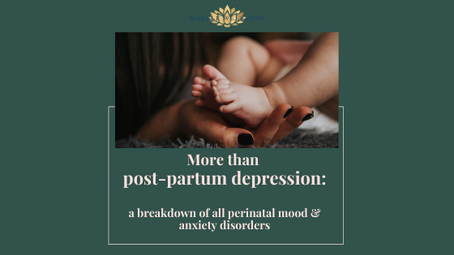Perimenopause and menopause are well-known for their physical symptoms—hot flashes, night sweats, fatigue—but the emotional impact often takes women by surprise. Mood swings, irritability, anxiety, and even feelings of grief or loss can be just as disruptive as the physical changes. If you’re finding yourself feeling unlike “you” lately, know that you’re not alone. Let’s dive into the emotional challenges of this transition and, most importantly, how you can navigate them with support, self-care, and professional help.
Understanding the Emotional Rollercoaster of Perimenopause
Perimenopause, the years leading up to menopause, can last anywhere from a few years to a decade. During this time, estrogen and progesterone levels fluctuate wildly, impacting neurotransmitters like serotonin and dopamine—the brain’s mood regulators. This hormonal instability can contribute to:
- Mood swings that feel like PMS on steroids
- Irritability and anger over things that never used to bother you
- Anxiety and panic attacks, sometimes out of nowhere
- Sadness or depression, even if you’ve never struggled with it before
- Forgetfulness or brain fog, making you feel scattered
- Loss of motivation or energy, leading to frustration
The emotional impact is often intensified by the fact that this phase of life coincides with other major stressors: aging parents, children leaving home, career shifts, or reassessing personal relationships. It’s no wonder many women feel overwhelmed.
Perimenopause Fact vs. Fiction: Clearing Up the Confusion
There’s a lot of misinformation about perimenopause and menopause, which can make an already confusing time even harder to navigate. Let’s set the record straight on some common myths:
Fiction: Menopause happens overnight.
Fact: Menopause is officially diagnosed after 12 consecutive months without a period, but the transition (perimenopause) can last anywhere from 4 to 10 years.
Fiction: Mood swings and anxiety are just part of the process—nothing can be done.
Fact: While hormone fluctuations play a role, therapy, lifestyle changes, and even certain medications can help manage symptoms.
Fiction: Only older women go through perimenopause.
Fact: Perimenopause can begin as early as your late 30s or early 40s, with symptoms varying widely from person to person.
Fiction: Hormone replacement therapy (HRT) is the only treatment for menopause symptoms.
Fact: HRT can be helpful for some women, but there are many other approaches, including therapy, lifestyle adjustments, and alternative treatments.
Fiction: After menopause, everything stabilizes emotionally.
Fact: While hormone levels eventually settle, emotional challenges can persist, particularly if stressors or unresolved issues are present before menopause.
How Therapy for Women in Perimenopause & Menopause Can Help
Counseling for women during perimenopause and menopause can be a game-changer. A Lake St. Louis therapist can help you:
- Process emotional shifts and understand where they’re coming from
- Develop coping strategies to manage anxiety, mood swings, and irritability
- Reframe negative thoughts about aging and self-worth
- Navigate relationship changes that often happen during this phase
- Create a plan for maintaining mental and emotional well-being
Therapists trained in women’s health issues understand how deeply hormones impact emotions and behaviors. Working with a counselor can help you separate what’s hormonal from what’s situational—and give you tools to manage both.
Practical Strategies for Emotional Balance During Perimenopause
Beyond therapy, there are steps you can take to regain a sense of balance:
1. Prioritize Sleep
Sleep disturbances are common during perimenopause, which only exacerbates mood issues. Try to:
- Maintain a consistent sleep schedule
- Avoid screens and stimulants before bed
- Create a cool, dark, quiet sleep environment
2. Move Your Body—But Don’t Overdo It
Exercise releases endorphins, which help combat mood swings and anxiety. However excessive, high-intensity workouts can increase stress hormones. Find a balance with activities like:
- Walking or hiking
- Yoga or Pilates
- Strength training
3. Lean Into Mindfulness and Stress Reduction
Meditation, deep breathing, and journaling can all help regulate emotions. Even just a few minutes a day can make a difference.
4. Focus on Nutrition
What you eat impacts how you feel. To stabilize blood sugar and support brain function:
- Eat protein and healthy fats with every meal
- Reduce processed sugar and caffeine
- Stay hydrated
5. Maintain Connection
Social withdrawal is common during this phase, but isolation often makes emotional symptoms worse. Stay connected by:
- Scheduling time with friends
- Joining a support group
- Talking openly with your partner about what you’re experiencing
6. Set Boundaries and Reduce Overcommitment
You’re likely juggling a lot—work, family, obligations. Now is the time to:
- Say no when needed
- Delegate responsibilities
- Prioritize your own well-being
You’re Not Alone in This
Perimenopause and menopause bring undeniable challenges, but they don’t have to derail your life. Understanding the emotional impact, seeking support through therapy, and making small, sustainable changes can help you feel more in control. If you’re struggling, know that help is available—and you don’t have to navigate this transition alone.
Start Therapy for Women in the Lake St. Louis, MO Area
If you live in the St. Louis metro area and are ready to improve your mental health, our expert Lake St. Louis therapists are here to help. Our therapy office in Lake St. Louis (serving the O’Fallon, St. Charles, and Wentzville areas) is a convenient place to get the dedicated and professional support you need. Reach out to our Client Care Coordinator today to discuss your therapy options, both in-person and via online therapy in Missouri.
Contact Us!
Learn About Our Group Offerings

Additional Counseling Services at Marble Wellness in St. Louis, MO
Marble Wellness Counseling services are designed to help set you on a path of living a more fulfilled, calm, and happy life. Our St. Louis area therapists have a variety of training backgrounds and areas of expertise. We specialize in anxiety, depression, grief, chronic illness, therapy for men, couples, and maternal overwhelm. Our practice also helps new moms with various postpartum concerns, moms in the thick of parenting, and moms with teens. We can also chat from wherever you are in the state with online therapy in Missouri. No matter where you are in your journey, we are here to help you thrive!



